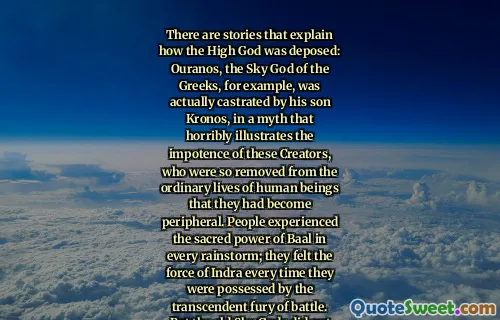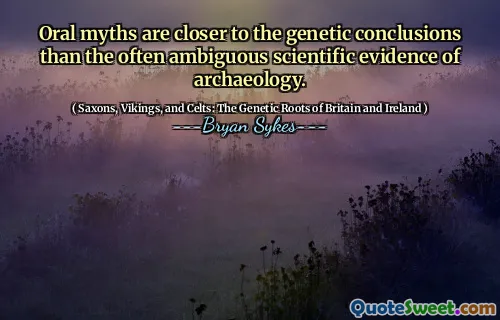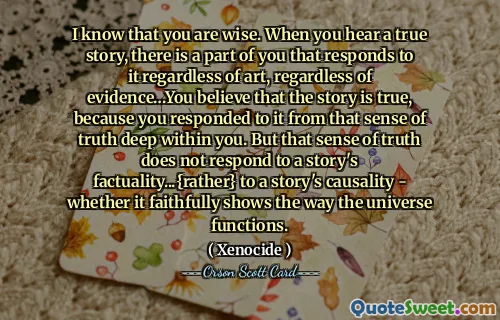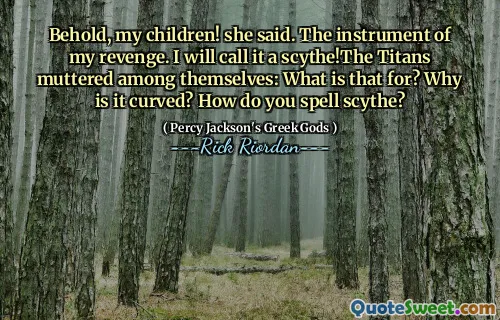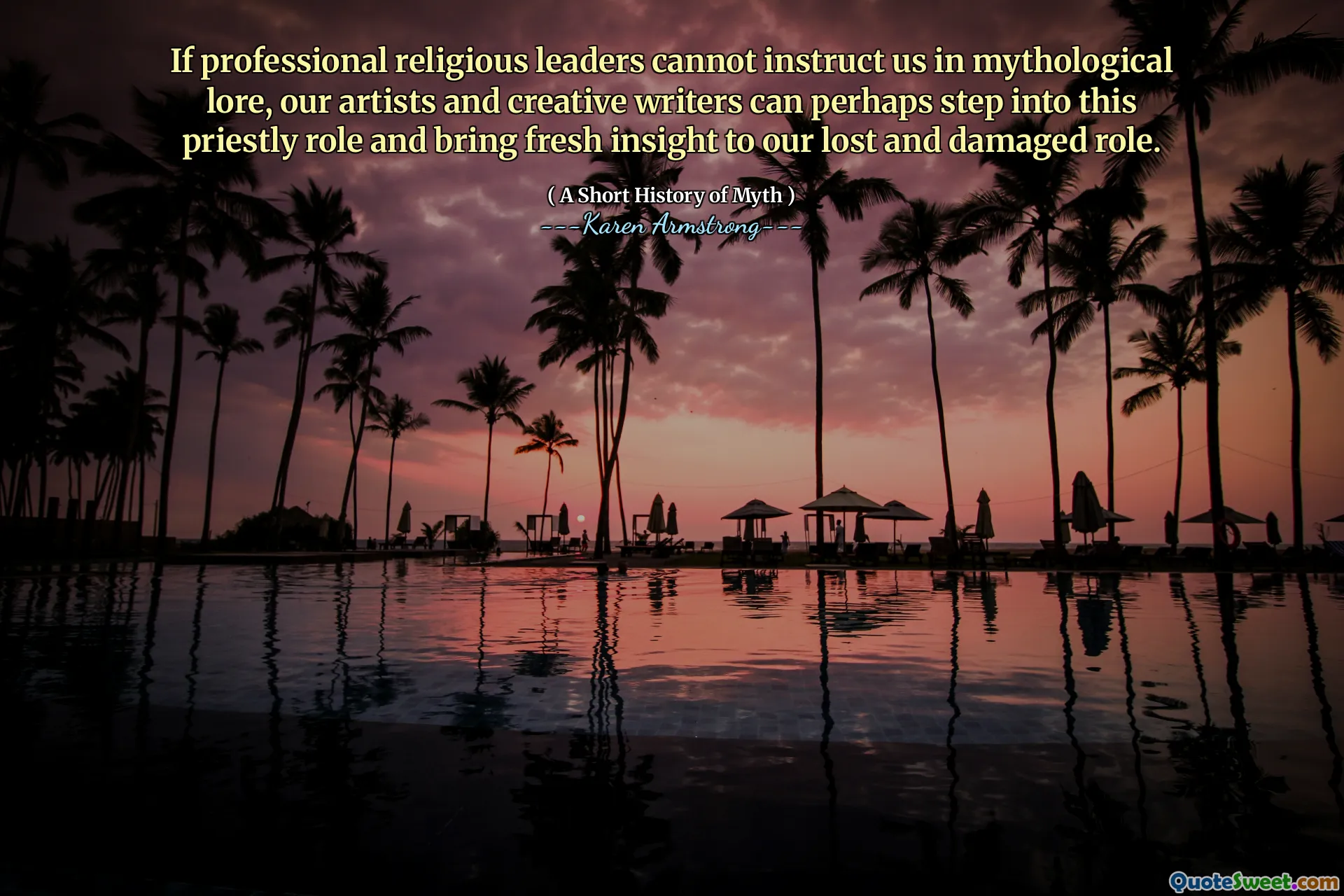
If professional religious leaders cannot instruct us in mythological lore, our artists and creative writers can perhaps step into this priestly role and bring fresh insight to our lost and damaged role.
Karen Armstrong's observation highlights a profound shift in the custodianship of mythological and spiritual knowledge in contemporary society. Traditionally, religious leaders played a central role in interpreting and passing down the myths that shaped cultural values, moral frameworks, and communal identities. These stories, often regarded as sacred, were fundamental in providing context to human existence and experiences, connecting individuals to something larger than themselves. However, as institutional religion's influence wanes in many parts of the world, Armstrong suggests a vital cultural void emerges—one concerning the transmission and reinterpretation of mythological lore. Artists and creative writers are uniquely positioned to fill this gap by assuming what she terms a 'priestly role.' Rather than relying solely on doctrinal or dogmatic teachings, these creative individuals bring fresh perspectives that can revitalize ancient myths and narratives. Through their reinterpretations and inventive expressions, they can make these myths relevant for modern audiences, enabling society to reconnect with the symbolic language that offers meaning in times of uncertainty and disorientation. This role is not merely about storytelling; it is an essential cultural function that nurtures psychological and spiritual wellbeing. Armstrong urges a reevaluation of how we engage with myth, suggesting that sacred knowledge need not be confined to formal religion but can thrive through artistic creativity. In doing so, she opens up a space for new kinds of myth-making that honor the past while addressing contemporary challenges, helping society recover a sense of identity and purpose that is often fragmented in our modern world.

